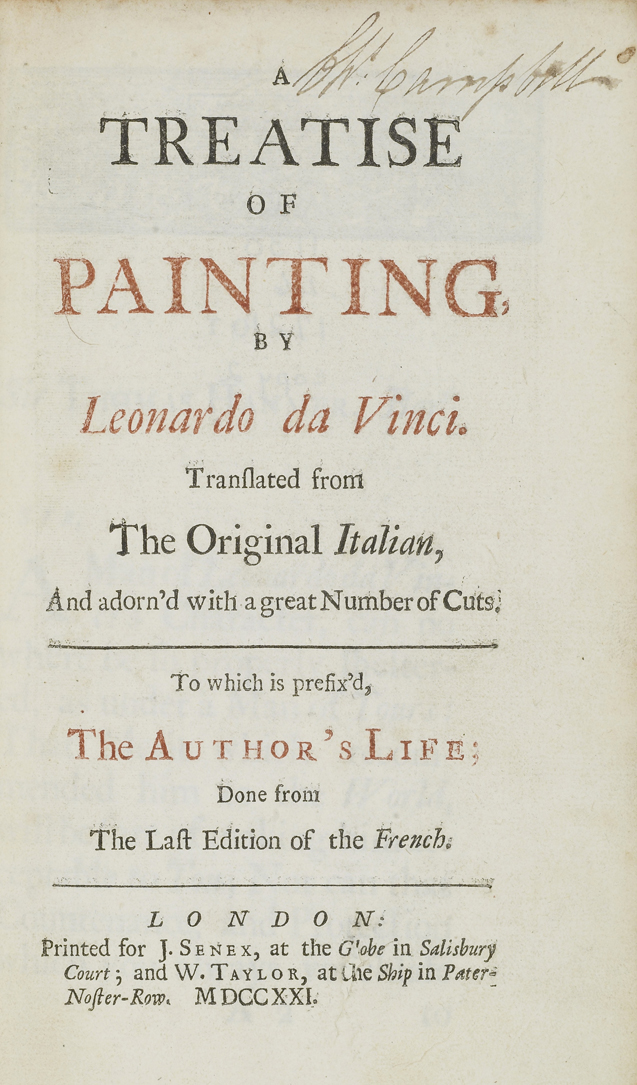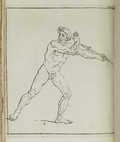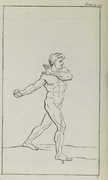
A Treatise on Painting, by Leonardo da Vinci
1721
Senex and Taylor, London
Illustrations:   | Chapter Display  |
I537I538
The principal part of Painting lies in the Art of making happy Compositions; The Expression is the next part in Dignity, and consists in giving each Figure the necessary Attention to what it is doing; and in making it show a briskness and vivacity suitable to its Character, and agree ble to the Action it is about, whether that be slow and heavy, or whether it require a greater share of Activity, and Fire: Thus to throw a Dart, a Stone, or any the like projectile, let your Figure be seen in such an Attitude, and have such a Disposition in all its Members, that its Intention may plainly appear: The two adjoyning Figures furnish you with Instances of this kind; where their different Attitudes do plainly show them engag'd in very different Actions. A shows the greatest Zeal and Earnestness, and aims a Dart, B appears more cool and languid, grasping a Stone; now A will certainly throw his Dart to a greater Distance, than B his Stone, because though they both look the same Way, and seem to aim at the same Mark, yet in Effect, A makes the most resolute Effort; for his Feet are turn'd on the side opposite to that where he meditates his stroke; so that in recovering himself, the Parts spring nimbly back to their Place, and discharge the Dart with incredible Velocity: On the contrary, the Figure B having his Feet, and the rest of his Body in a natural Situation, acts at a Disadvantage; so that its Motion is more feeble, and the Stone is projected with less violence; for it may be observed, that every Impetus or Effort in general, to have a forcible effect, must begin with violent Contorsions, and end in free, easy and natural Motions; thus a Sling, unless vehemently agitated it self, gives but a languid Motion to the Body it projects; and thus an Arrow comes loitering out of the Bow, that is not vigorously drawn. Now the Figure A having launch'd his Dart, will find his whole Force exhausted towards that Quarter; so that though he immediately acquire new Strength, yet that does only enable him to recoil, and to make a Motion, contrary to that already made.